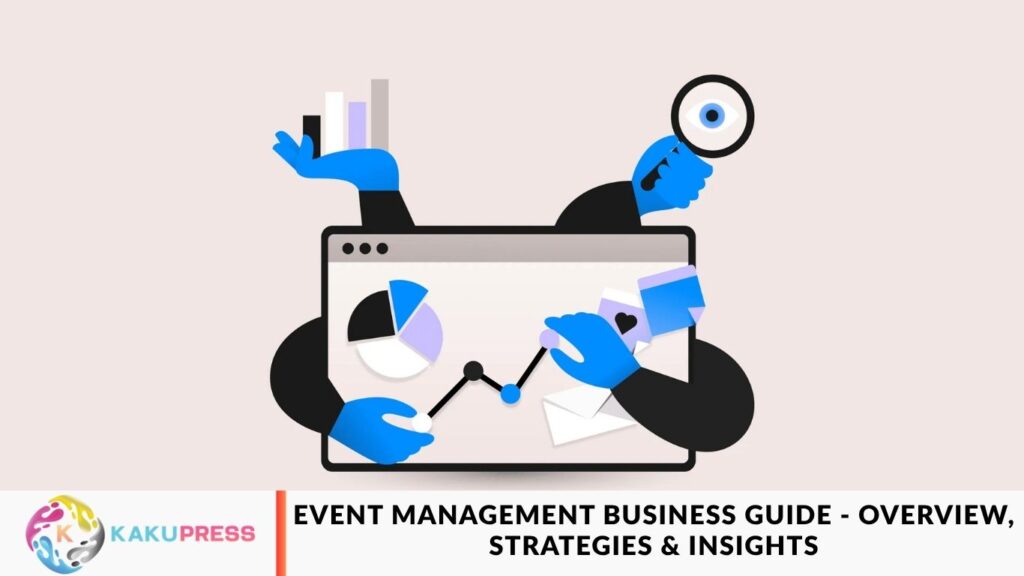Event management is a fast-growing and dynamic industry that focuses on planning, organizing, and executing events of all types—from corporate conferences and trade shows to weddings, concerts, and music festivals. Running an event management business means your main goal is to deliver unforgettable experiences for clients and attendees alike. In this guide, we’ll break down the essential aspects of the event management industry, including strategies, business opportunities, and tips for success.
Understanding Your Niche
Before starting your event planning business, it’s crucial to define your niche. Do you want to focus on weddings, corporate events, or cultural festivals? Each niche comes with its specific requirements, target audience, and planning challenges. By specializing in a particular area, you can customize your services, stand out from competitors, and build a strong, recognizable brand in the event management industry.
Client Consultation and Needs Assessment
Effective communication with clients is essential for any event management business. Take the time to understand their vision, goals, and budget, and ask detailed questions to uncover their preferences, including venue style, event theme, and desired guest experience. Conducting a thorough needs assessment helps ensure that every detail aligns with client expectations, laying the foundation for a successful and memorable event.
Budgeting and Financial Management
Developing a comprehensive budget for each event is a key step in successful event management. Account for all expenses, including venue rental, catering, decor, entertainment, and marketing costs. Effective financial planning and budget management not only help control costs but also ensure your event management business remains profitable while consistently delivering high-quality, memorable experiences for clients.
Read more: How Renting or Selling Your Belongings Can Earn You Extra Money
Vendor Relationships
Building trustworthy partnerships with vendors—including caterers, decorators, photographers, and entertainers—is essential for successful event management. Negotiate fair contracts, carefully review portfolios, and select reliable partners who align with your client’s vision and event goals. Strong vendor relationships help ensure smooth execution, high-quality services, and memorable experiences for every attendee.
Event Planning and Logistics
Successful event management requires meticulous planning. Develop detailed timelines, comprehensive checklists, and contingency plans to stay organized. Coordinate all logistics, including transportation, accommodation, and technical setups, to ensure the event runs smoothly. Prioritizing attention to detail is key to delivering seamless, memorable experiences for clients and attendees alike.
Marketing and Promotion
Boost your event management business by leveraging social media, a professional website, and networking opportunities. Highlight successful events, client testimonials, and your team’s expertise to build credibility and attract new clients. In the event industry, word-of-mouth referrals remain one of the most powerful tools for growth and establishing a strong reputation.
On-Site Execution
During the event, oversee all aspects, from registration and seating arrangements to resolving unexpected challenges. Staying adaptable and calm under pressure is essential for ensuring a smooth experience. Effective on-site event management guarantees that every detail is executed flawlessly, leaving a lasting impression on clients and attendees.
Post-Event Evaluation
After the event, assess its overall success by gathering feedback from clients and attendees. Analyze both positive outcomes and areas for improvement to refine your processes and enhance future events. Consistent post-event evaluation helps your event management business deliver increasingly memorable and high-quality experiences.
Legal and Insurance Considerations
A successful event management business requires a clear understanding of legal requirements, necessary permits, and liability insurance. Proper compliance safeguards both your business and clients from unexpected risks, ensuring events run smoothly and responsibly. Prioritizing legal and risk management builds trust and credibility in the industry.
Trends and Innovation
Stay ahead in the event management industry by keeping up with the latest trends, innovative technologies, and sustainability practices. Incorporating creative ideas ensures your events are memorable, engaging, and stand out from the competition.
Passion, Organization, and Exceptional Service
The event management business thrives on a combination of creativity, meticulous organization, and outstanding customer service. Whether coordinating a grand gala or an intimate gathering, your dedication and passion will distinguish your services and leave a lasting impression on clients and attendees.
Frequently Asked Questions
What is an event management business?
An event management business plans, organizes, and executes events such as corporate conferences, weddings, concerts, and festivals, focusing on creating memorable experiences for clients and attendees.
How do I start an event management business?
Start by identifying your niche, creating a business plan, registering your company, building a network of reliable vendors, and promoting your services through social media and professional websites.
What skills are required for event management?
Key skills include communication, organization, budgeting, negotiation, creativity, and problem-solving, along with the ability to remain calm under pressure.
How do I choose the right event niche?
Consider your passions, expertise, and target audience. Common niches include weddings, corporate events, cultural festivals, and music events. Specializing helps you stand out and attract clients.
How can I manage event budgets effectively?
Create detailed budgets covering venue, catering, decor, entertainment, and marketing. Track expenses carefully to ensure profitability while delivering high-quality services.
Why is vendor management important in event planning?
Strong relationships with caterers, decorators, photographers, and entertainers ensure smooth execution. Reliable vendors aligned with client visions enhance the overall event experience.
What role does technology play in event management?
Incorporating event management software, virtual platforms, and automation tools helps streamline planning, track tasks, and enhance attendee engagement.
Conclusion
The event management business thrives on creativity, planning, and exceptional client service. From niche selection and vendor partnerships to managing budgets and logistics, each step ensures memorable events. Staying updated with trends, technology, and sustainability keeps your business competitive and innovative.

